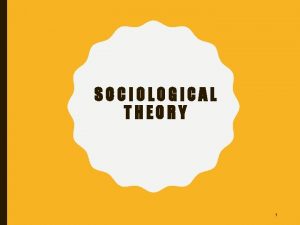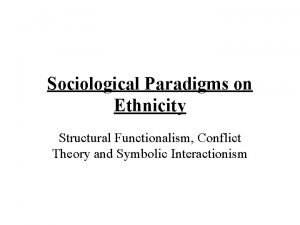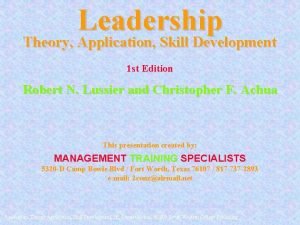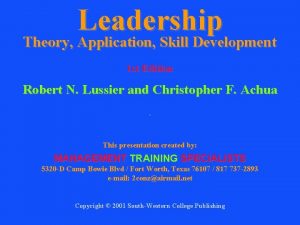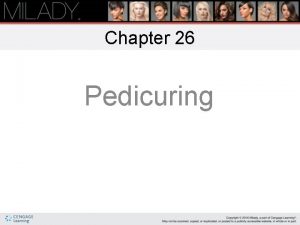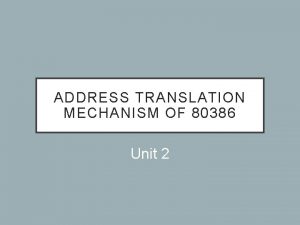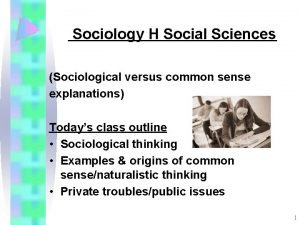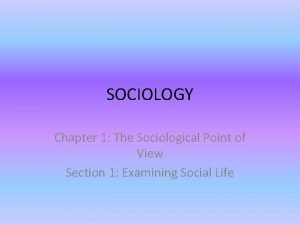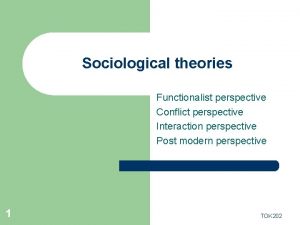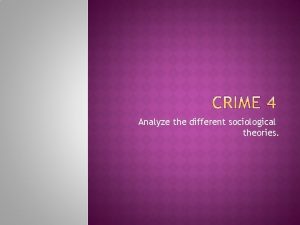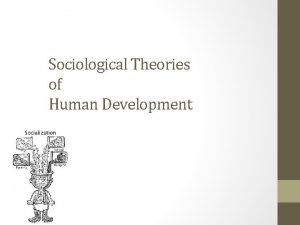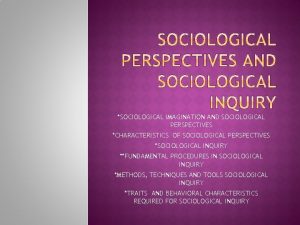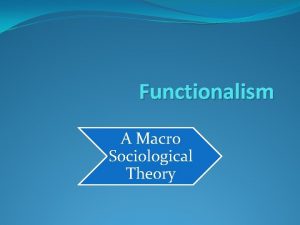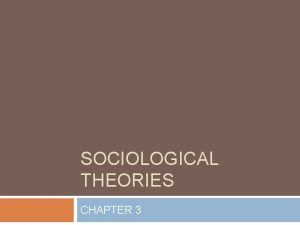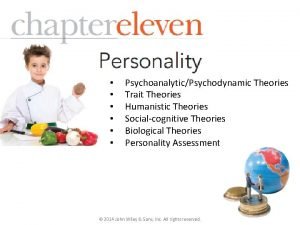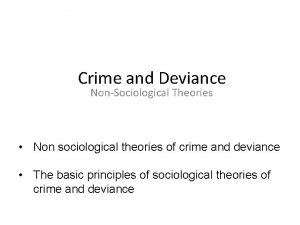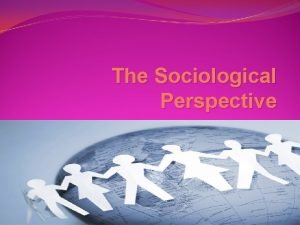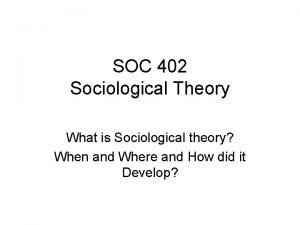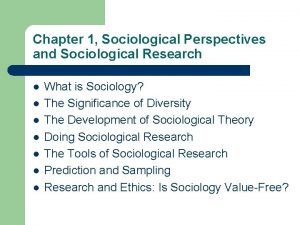Sociological Theories Sociological theories are used to explain





















- Slides: 21

Sociological Theories

Sociological theories are used to explain social behavior. 1. What issues should we study? 2. How should we connect the facts?

Structural-Functional Paradigm

Structural-FUNCTIONAL Paradigm

* See society as a complex system whose parts work together to promote solidarity and stability. * Social structure: a stable pattern of social behavior. * Social functions: consequences for the operation of society as a whole.

Organizes sociological observations by identifying structures of society and investigating their functions.

Core Questions in the Structural-Functional Paradigm 1. How is society integrated? 2. What are the parts of society? 3. How are these parts interrelated? 4. What are the consequences for each part for the overall function of society?

Issues with Structural-Functional Paradigm 1. Focus on society as stable and orderly. Ignores inequalities in society.

Let’s look at divorce through the Structural-Functional lens

Social-Conflict Paradigm

* See society as a place of inequality which creates conflict and change. * Highlights inequality. * How social factors are linked to inequality.

Core Questions in the Social-Conflict Paradigm 1. How is society divided? 2. What are the major patterns of inequality? 3. How do categories of people try to protect their privileges? 4. How do categories of people try to challenge the status quo?

Issues with Social-Conflict Paradigm 1. Ignores how shared values and interdependence unify a society. 2. Political goals. 3. Is too broad with social categories.

Let’s look at divorce through the Social Conflict lens

Symbolic-Interaction Paradigm

* Close up focus on social interaction in specific situations. * Society is the product of everyday interactions of people. * Society is the shared reality that people create through interactions. * Society is a complex, constantly changing picture of subjective meanings.

Core Questions in Symbolic-Interaction Paradigm 1. How is society experienced? 2. How do humans interact to create, maintain and change social patterns? 3. How do people try to shape the reality that others see? 4. How does individual behavior change from one situation to another?

Issues with Symbolic-Interaction Paradigm 1. Ignores large social structures, effects of culture and social factors.

Let’s look at divorce through the Symbolic-Interaction lens

Sports

Which Sociological Theory do you prefer?
 Mikael ferm
Mikael ferm Sociological imagination vs sociological perspective
Sociological imagination vs sociological perspective Sociological theory of crime
Sociological theory of crime Sociological theories
Sociological theories Max weber symbolic interactionism
Max weber symbolic interactionism Emulsions definition
Emulsions definition Behavioral leadership theories attempt to explain
Behavioral leadership theories attempt to explain Behavioral leadership theories attempt to explain
Behavioral leadership theories attempt to explain Behavioral leadership theories attempt to explain
Behavioral leadership theories attempt to explain Upward movement of the internal phase of emulsion
Upward movement of the internal phase of emulsion Action assembly theory examples
Action assembly theory examples Name five pieces of equipment unique to pedicures
Name five pieces of equipment unique to pedicures Memory address translation on 8086
Memory address translation on 8086 Slidetodoc.com
Slidetodoc.com Explain why address space identifiers (asids) are used
Explain why address space identifiers (asids) are used Draping a client for shampoo
Draping a client for shampoo Sociological theory in corporate governance
Sociological theory in corporate governance The sociological perspective stresses that:
The sociological perspective stresses that: Common sense and sociological explanations
Common sense and sociological explanations By adopting a sociological imagination
By adopting a sociological imagination Functionalist vs conflict theory
Functionalist vs conflict theory Maggie mendez
Maggie mendez



